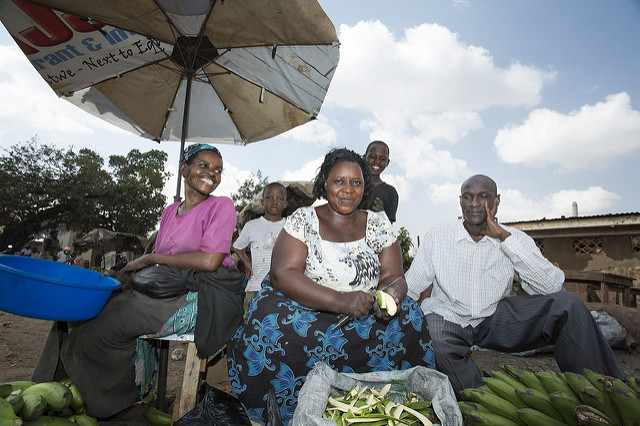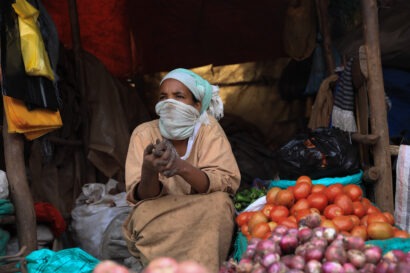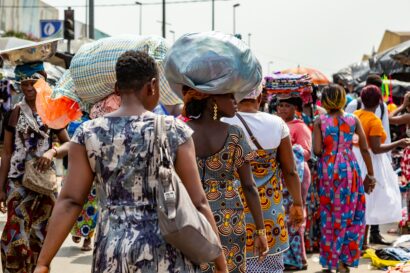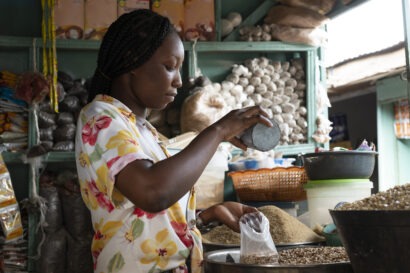For the past twenty years, Maama Sula (let’s say) has run a small fast-food restaurant in a town called Wandegeya in Kampala, Uganda. She sources the bulk of her supplies from the women in the nearby market. Because her business is relatively well-established, she pays income taxes and Value Added Tax (VAT) to the central government and a yearly trade licensing fee to the local authority. She also pays garbage collection fees. For someone with a small business and limited tax knowledge, the requirements to keep books of account, file returns, and interact with tax officials can be intimidating. Yet Maama Sula is one of very few women in Wandegeya and Uganda who pay income taxes.
Being a business hub, Wandegeya has many small enterprises, among which are numerous hair salons. Most of these salons are informal and employ hundreds of women as casual labourers. Salon owners pay taxes in the form of trading licenses to local authorities and the casual labourers pay the owners a share of their proceeds at the end of the day. But we know very little about the actual nature of these payments. We also have very limited knowledge about how the tax system affects women-dominated businesses such as salons when compared to male-dominated businesses. In fact, it is only quite recently that discussions on taxation have begun to cast a spotlight on the different impacts that taxes have on women and men.
Among those advocating for a gender-sensitive analysis of taxation in developing countries are civil society organisations (CSOs). Throughout the month of March 2017 (around International Women’s Day), CSOs such as the Global Alliance for Tax Justice, ActionAid, and FEMNET ran campaigns on Tax Justice for Women’s Rights and proposed what gender-sensitive tax systems should look like.
The campaigns revolved around three broad issues:
- The need to eliminate gender biases in income tax laws.
- The need for developing countries to increase revenue collection by better taxing multinational companies and rich individuals. CSOs argue that the increased revenues can help to fund social welfare programmes such as healthcare, childcare and access to water, which would in turn relieve women of the burden of providing these services.
- The importance of removing indirect taxes such as VAT on basic household goods since these taxes affect women disproportionately.
This focus on the gender dimensions of taxation is long overdue. However, for the campaigns to improve the lives of women in developing countries, it is important that we ask ourselves: are we advocating for policies that have practical relevance in these contexts?
Here are some of the shortcomings in the recent campaigns:
- Maama Sula represents a very small percentage of women in developing countries who pay income taxes. The majority of women in developing countries are employed in the informal sector, meaning that they are not affected by income tax laws. The 2015-2016 UN Women Report, for example, notes that 95% of women in South Asia, 89% in Sub-Saharan Africa, and 59% in Latin America and the Caribbean are in informal employment.
- Raising additional revenue does not guarantee that governments will spend this money on social welfare. Therefore, without scrutinizing the budgets of specific countries, we cannot assume that the money raised through taxing multinational corporations will be used for the benefit of women.
- VAT is a significant source of much-needed revenue in developing countries. In sub-Saharan Africa, it contributes about a quarter of total tax revenue. The impacts of VAT are complex to assess. Suffice to say, however, that in many developing countries, basic consumption goods are exempt from VAT and studies show that as a result of such exemptions, it doesn’t place an undue burden on poor women.
If we want to reform tax policies in order to improve the lives of poor women, we urgently need more research on the following issues:
- What taxes affect women who operate in the informal sector?
- What are the experiences of women in dealing with tax collectors?
- How do women such as those in the market and salons in Wandegeya organize themselves to voice their concerns about the tax system and learn more about their rights and obligations?
- What is the impact of having more women in tax administration? Does it improve revenue performance, reduce corruption and/or result in less harassment of female taxpayers?
- What other payments do women make to access public goods and services? These may not be formally referred to as taxes, but have the characteristics of taxation. What is the impact of this on women’s livelihoods and relationship with the state?
With funding from the Bill and Melinda Gates Foundation, the ICTD has begun a new program of research to investigate these very questions. This agenda for research was generated through a review of existing evidence (see our Summary Brief), as well as collaboratively at a workshop in Ghana involving 35 participants from 14 countries representing academic institutions, civil society, donor agencies, and African revenue authorities and ministries of finance. After an overwhelming response to our call for proposals, several research projects are underway, and we look forward to sharing the findings with CSOs and governments to better inform future tax justice campaigns, tax policies and practices affecting women in the developing world.



